#nicholas levine
Explore tagged Tumblr posts
Text
every day i think about like. the fact that noel would probably be famous in most contexts
worldwide celebrity mom
local beloved extremely powerful politician dad
looks a lot like his mom
both parents died "tragically" under somewhat mysterious circumstances which people can speculate about endlessly, so you bet their deaths are hot topics
the interest in nicholas as his father would probably mainly be local since i doubt he was well known outside of that town. but no matter where he went the interest in patricia as his mother would follow him. he'd be constantly asked why she died etc etc
noel might try to hide this fact, it really does depend on the context of the AU and why and how he's out in society but i imagine he'd avoid talking about his last name, try to erase his family history etc etc but there might be contexts in which he just can't hide it, say people already know and it's too late, and there might be contexts in which it gets dug up anyway
i have extensive noel family headcanons somebody needs to save me
also imagine like a modern AU (where music is played in stores). noel couldnt go like 2 minutes without hearing songs sung by his dead mother if he went to a store he would hate it
41 notes
·
View notes
Text
Omg I'm alive here.
I’m carrying here the drawings that I managed to scribble for Q&A.
Young Nicholas, Sirius and Claire.



18 notes
·
View notes
Text







SAME DOROTHY SAME
I dont think i posted this(and I can’t find the screenshots) but I can not describe my reaction to the Patricia is my wife shit from Nicholas
I’m p sure I was in the school basement witch has really bad WiFi so I didn’t post it( I was also to discusted)
#the dumbass speaks#Dorothy elford#Dorothy wh#noel levine#nicholas levine#witch’s heart spoilers#witch’s heart
17 notes
·
View notes
Text
Guess who just spent 2 hours on the couch reading Anna Karenina 😭😭
#serezha.....my dear boy...........also levin and kitty and the whole thing with nicholas was just 😭😭😭😭😭#i look askance at oblonsky though that expired pudding of a man is so repulsive#songbird reads
12 notes
·
View notes
Text
Great Books Don’t Make Great Films, but “Nickel Boys” Is a Glorious Exception
RaMell Ross’s first dramatic feature, an adaptation of Colson Whitehead’s novel, gives the bearing of witness an arresting cinematic form.
By Richard Brody December 6, 2024
It’s harder to adapt a great book than an average one. Literary greatness often inhibits directors, who end up paying prudent homage to the source rather than engaging in the bold revisions that successful adaptations require. And even uninhibited directors may lack the stylistic originality of their literary heroes. It’s all the more remarkable, then, that the director RaMell Ross, in his first dramatic feature, “Nickel Boys”—adapted from Colson Whitehead’s Pulitzer-winning 2019 novel, “The Nickel Boys”—avoids both obstacles with a rare blend of daring and ingenuity. Few films have ever rendered a major work of fiction so innovatively yet so faithfully. In a year of audaciously accomplished movies, “Nickel Boys” stands out as different in kind. Ross, who co-wrote the script with Joslyn Barnes, achieves an advance in narrative form, one that singularly befits the movie’s subject—not just dramatically but historically and morally, too.
The movie’s title refers to Black youths (teens and younger) who are inmates of the Nickel Academy, a segregated and abusive “reform school” in rural northern Florida—particularly to two teen-agers, Elwood (Ethan Herisse) and Turner (Brandon Wilson), who become friends while incarcerated there, in the mid-nineteen-sixties. (The institution in Whitehead’s novel is inspired by the notorious Dozier School for Boys, but his characters are fictional.) Elwood, who is sixteen years old when he enters the facility, is being raised by his grandmother Hattie (Aunjanue Ellis-Taylor), who works on the cleaning staff of a hotel. He’s a star student, literary and politically passionate, in a segregated school. One of his teachers, Mr. Hill (Jimmie Fails), is a civil-rights activist, and he plays a Martin Luther King, Jr., speech on a record for his students. Elwood gets his picture in a local newspaper for participating in a civil-rights demonstration, but he’s only holding a sign; he longs to join in civil disobedience, but Hattie seems skeptical about the idea. Hitchhiking to a nearby college for advanced classes, he gets a ride from a flashily dressed, fast-talking Black man (Taraja Ramsess) whose car, unbeknownst to Elwood, is stolen. When the police pull the driver over, the innocent Elwood, too, is punished, resulting in his internment in Nickel.
From the start, Ross throws down a stylistic gauntlet: up until Elwood’s imprisonment, the action is seen entirely from his point of view—literally so, as if the camera were in the place occupied by his head, pivoting and tilting to show his shifting gaze, while his voice is heard offscreen. This device was famously used by Robert Montgomery in his 1947 adaptation of Raymond Chandler’s “The Lady in the Lake,” but it was no more than a gimmick. In Ross’s hands, the device becomes something overwhelmingly expressive: the images, rather than merely recording Elwood’s emotions, register the cause of those emotions and allow the viewer to partake in his inner world.
The results can be puckish, as when Elwood’s reflection appears in the chrome side of the iron that Hattie is sliding across an ironing board. But Ross’s technique is exquisitely responsive to the story’s depth and range of experience. The viewer shares Elwood’s naïve bewilderment when the driver of the stolen car, hearing a police siren, tells him not to turn around; similarly, one feels the anguished anticipation when Elwood awaits transport to Nickel. At this point, an extraordinary scene tears a hole in time, bringing the history of Black American life rushing in to overtake Elwood’s own: Hattie, with an air of unusual formality and seething indignation, recalls in excruciating detail her father’s death in police custody and her husband’s death at the hands of white assailants. But she expects better for Elwood.
Once the police have deposited Elwood in Nickel’s run-down barracks for Black inmates, Ross extends the dramatic force of his method while expanding its intellectual scope. At breakfast, Elwood meets Turner, who’s from Houston and much more streetwise. The impact of this moment is heralded in a coup de cinéma that is a vast amplification of the story: a repetition of the breakfast-table encounter, seen, the second time around, from Turner’s point of view. Once the pair become friends, both of their perspectives share the film, to mighty effect.
Elwood’s wrongful detention is only the first of the Job-like litany of injustices heaped upon him. In Nickel, sucker-punched and knocked out by a bigger kid, Elwood receives the same standard and brutal punishment as his assailant. Nickel’s sadistic supervisor, Mr. Spencer (Hamish Linklater), who is white, administers beatings with a strap in the so-called white house, far from the barracks. An industrial fan is used to drown out the victims’ screams, but it doesn’t quite do so, and Elwood, with his view of the horrors obstructed, hears them in terror while awaiting his turn.
Hospitalized as a result of the beating, Elwood gets a surprise visit from Turner, who’s also a patient (having skillfully feigned illness). Turner warns him that there are still worse punishments menacing the Nickel inmates, ranging from the sweat box—a brutally hot crawl space under a tar roof—to actual murder. (Such deaths were covered up by burial in unmarked graves and an official lie that the child ran away without a trace.) Elwood, inspired by the civil-rights movement and knowing that his grandmother has hired a lawyer, is confident that justice will prevail. He even keeps a notebook in which he records unpaid labor and which he thinks will help get Nickel shut down. Turner has no such confidence, insisting that no one gets out of Nickel alive except by getting himself out. The two teens’ visual perspectives, alternating through the hospital scene, embody their diametrically opposed views of American society, of their prospects, and of the destinies that await them.
Through Elwood’s and Turner’s eyes, in scenes that unfold in long and complex takes, the movie offers a formidable fullness of incident, intimately physical detail, and finely nuanced observations. The corruption of Nickel’s administrators and the legitimized absurdities of their cruel regime come to light as they’re experienced by the two teens, as do Hattie’s struggles to stay connected with Elwood and to seek legal relief. Lyrical snatches of daily life—passing moments of grace on a job outside Nickel’s grounds or during free moments in a rec room—are haunted by traces of past brutality and flickers of menace. Ross stages the action with a choreographic virtuosity that’s all the more astonishing given that this is his first dramatic film. (His previous feature, from 2018, is the documentary “Hale County This Morning, This Evening.”) His teeming visual imagination is matched by the agile physicality of Jomo Fray’s cinematography. As a first dramatic feature, “Nickel Boys” is in the exalted company of such films as Terrence Malick’s “Badlands” and Julie Dash’s “Daughters of the Dust.” Like them, it comprehensively creates a new way of capturing immediate experience cinematically, a new aesthetic for dramatizing history and memory.
Early on, the action is set in historical perspective by means of flash-forwards. Eventually, there are revelations about the atrocities at Nickel; the grounds are excavated, and human remains discovered. One of the friends (played as an adult by Daveed Diggs) gets wind of these investigations, having in the intervening years made his way to New York, found employment as a mover, and started his own business. In this later time frame, Ross continues to rely on point-of-view images, but with a piercing difference. The camera now floats just behind the character’s head, depicting work and home, love stories and painful reunions, fleeting observations and a reckoning with the past, as if from two points of view simultaneously—one visual and one spectral, bringing absence to life along with presence.
The onscreen incarnation of Elwood’s and Turner’s perceptions isn’t only intellectual or theoretical. The moral essence of Ross’s technique is to give cinematic form to the bearing of witness. Where Whitehead’s novel describes his characters’ physical torments in the third person, with psychological discernment and declarative precision, Ross’s movie fuses observation and sensation with its audiovisual style. It suggests a form of testimony beyond language, outside the reach of law and outside the historical record. It is a revelation of inner experience that starts with the body and all too often remains sealed off there and lost to time—except to the extent that the piece of art can conjure it into existence.
The movie’s twin aspects of witness and of point of view have a significance that extends beyond the drama and into cinematic history. There were no Black directors in Hollywood until the late sixties, and no Hollywood films that conveyed then what “Nickel Boys” shows in retrospect: the monstrous abuses of the Jim Crow era and its vestiges. In bringing the historical reckonings of Whitehead’s novel to the screen, Ross hints at an entire history of cinema that doesn’t exist—a bearing of witness that didn’t happen and the lives that were lost in that invisible silence. ♦
Published in the print edition of the December 16, 2024, issue, with the headline “Each Other’s Back.”
Directed by: RaMell Ross Screenplay by RaMell Ross and Joslyn Barnes Based onThe Nickel Boys by Colson Whitehead Produced by Dede Gardner, Jeremy Kleiner, David Levine, Joslyn Barnes Starring: Ethan Herisse, Brandon Wilson, Hamish Linklater, Fred Hechinger, Daveed Diggs, Aunjanue Ellis-Taylor Cinematography: Jomo Fray Edited by Nicholas Monsour Music by Alex Somers and Scott Alario Production: Orion Pictures, Plan B Entertainment, Louverture Films, Anonymous Content Distributed by Amazon MGM Studios Release Dates: August 30, 2024 (Telluride) December 13, 2024 (United States) Running time140 minutes Country: United States Language: English
#Nickel Boys#RaMell Ross#Joslyn Barnes#Colson Whitehead#Dede Gardner#Jeremy Kleiner#David Levine#Ethan Herisse#Brandon Wilson#Hamish Linklater#Fred Hechinger#Daveed Diggs#Aunjanue Ellis-Taylor#Jomo Fray#Nicholas Monsour#Alex Somers#Scott Alario#Orion Pictures#Plan B Entertainment#Louverture Films#Anonymous Content#Amazon MGM Studios#The New Yorker#Richard Brody
15 notes
·
View notes
Text
the higher ranking demons all remember the loops so I wonder if the ones less able to keep a "human" form do as well... in particular Fiona and Dorothy.
just. what if they remember every single time they watched Claire and Sirius die, unable to do anything. for Fiona she loses her daughter again and again and again, and she was able to protect Claire from the fact she was killed for at least a bit but there's nothing she can do as her heart is ripped out one second and the next she's alive again. maybe it's a bit painful that she is right there, the whole time Fiona is there, but Claire doesn't remember and it means nothing. as for Dorothy... oh Dorothy...
the two children you took in because they had nothing left. the boy that you saved at that public execution, who you wished could one day grow. your granddaughter who you wished could live without the knowledge of her mother's passing (your own daughter's passing). the two children you gave your life to protect. watching her be killed 10,000 times. watching him being killed in most of them as well. in some - by far the most painful - he is the one to kill her.
but then the final loop. dinner is finally prepared. they both go to the house found in the eerily familiar field. for one fleeting moment they're all together. soon afterwards they both finally leave the mansion. they are both finally alive. maybe it was all worth it, just to see them finally move on from that unhappiness.
#wh spoilers#fucking. gah. the elfords. and sirius. the elfords and sirius.#i would like to punch nicholas levine in the face. so strongly.#witch's heart#claire elford#sirius gibson#dorothy elford#fiona elford#yeah i. i'll main tag. scampers away#bagel's rambles
15 notes
·
View notes
Text

#movies#polls#warm bodies#nicholas hoult#teresa palmer#jonathan levine#horror#submitted#ended#result: seen#result: unseen
23 notes
·
View notes
Text
On January 29, 2013, Warm Bodies premiered in Hollywood, California.


#warm bodies#hollywood#movie premiere#jonathan levine#nicholas hoult#horror#horror movies#horror art#zombie movies#zombie art#horror comedy#rom com#romantic comedy#art#movie art#drawing#movie history#pop art#modern art#pop surrealism#cult movies#portrait#cult film
2 notes
·
View notes
Text

Up next on my 80's Fest Movie 🎬 🎞 🎥 marathon...A Nightmare On Elm Street 4: The Dream Master (1988) on glorious vintage Media Home Entertainment VHS 📼! #movies #Movie #horror #anightmareonelmstreet #anightmareonelmstreet4 #ANightmareOnElmStreet4TheDreamMaster #wescraven #RIPWesCraven #freddy #freddykrueger #robertenglund #Tuesdayknight #rodneyeastman #kensagoes #lisawilcox #ANDRASJONES #brookebundy #BrookeTheiss #toyenewkirk #mickeyyablans #robertshaye #nicholasmele #RennyHarlin #racheltalalay #linneaquigley #jefflevine #vintage #VHS #mediahomeentertainment #80s #80sfest #durandurantulsas6thannual80sfest
#movies#horror#a nightmare on elm street#a nightmare on elm street 4#a nightmare on elm street 4 the dream master#wes craven#rip wes craven#freddy krueger#freddy#Robert Englund#Tuesday Knight#ken sagoes#Rodney Eastman#danny hassel#lisa wilcox#andras jones#toye newkirk#brooke theiss#Brooke Bundy#Nicholas Mele#Robert Shaye#mickey yablans#renny harlin#Rachel Talalay#vhs#media home entertainment#80s#80s fest#duran duran tulsa's 6th annual 80s fest#jeff levine
5 notes
·
View notes
Text
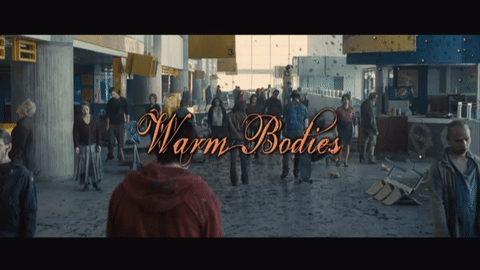
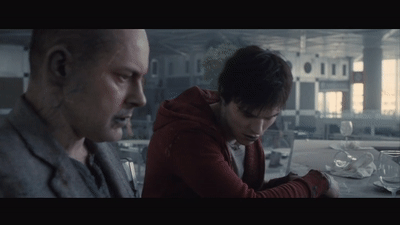

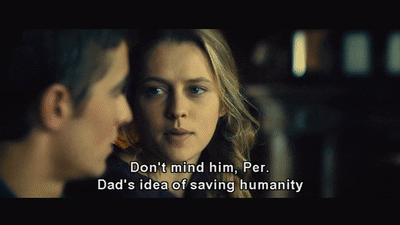


Warm Bodies (2013)
12 notes
·
View notes
Text
The spirited zom-com ‘Warm Bodies’ shambled into theaters this week 10 years ago. 🔥🧟♂️🫀
“𝚃𝚑𝚒𝚜 𝚍𝚊𝚝𝚎 𝚒𝚜 𝚗𝚘𝚝 𝚐𝚘𝚒𝚗𝚐 𝚠𝚎𝚕𝚕. 𝙸 𝚠𝚊𝚗𝚝 𝚝𝚘 𝚍𝚒𝚎 𝚊𝚕𝚕 𝚘𝚟𝚎𝚛 𝚊𝚐𝚊𝚒𝚗.”
#otd#2013#10#movies#romantic comedy#zom com#horror#zombies#warm bodies#nicholas hoult#john malkovich#jonathan levine#issac Marion#teresa palmer#lio tipton#analeigh tipton#rob corddry#cory hardrict#dave franco#Spotify
10 notes
·
View notes
Text
every day i think about the fact that noel after thousands of timelines thinks that sirius holds a grudge against him when all evidence suggests sirius trusts him the most. every day i think about the fact that noel constantly sees himself as a nuisance and inconvenience to sirius. every day i think about the fact that noel could've visited him in all of those 12 years but never did, instead opting to silently protect him. every day i think about the fact that noel massively unnecessarily harmed his entire body on purpose to apologize to sirius in a way he could not possibly comprehend as an apology that he was going to forget anyway as soon as the timeline reset. every day i think abou
(there's quite a bit of scrolling)







sorry the drawings are pretty low quality i just. really wanted to get this out there and was tired
#witch's heart spoilers#noel levine#sirius gibson#claire elford#dorothy elford#nicholas levine#sirinoel#I LOVE DOOMED YAOI YOU GUYS#noel is like just. so. Not normal about sirius and i think that does often get forgotten or missed#that monster scene doesnt just live in my head rent free its a permanent resident#also. about that halloween drawing#i dont think im gonna be able to get it to a place i like so i kinda gave up#ill show you what i did finish like. later.#drawings#part color#BACK TO SIRINOELPOSTING WOOHOOOOOOO
40 notes
·
View notes
Text
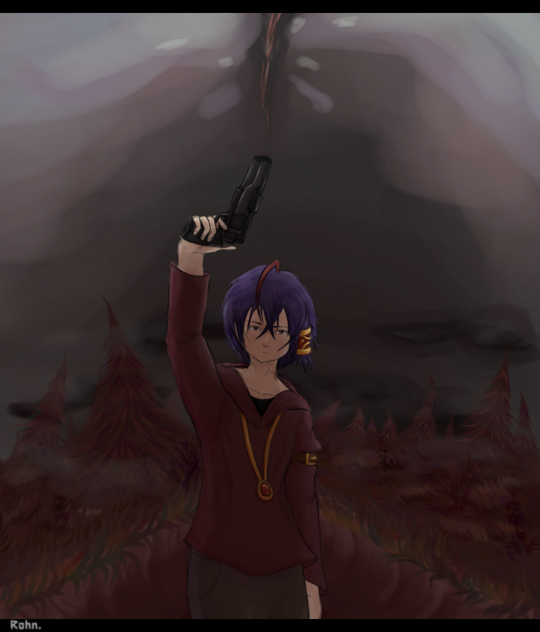

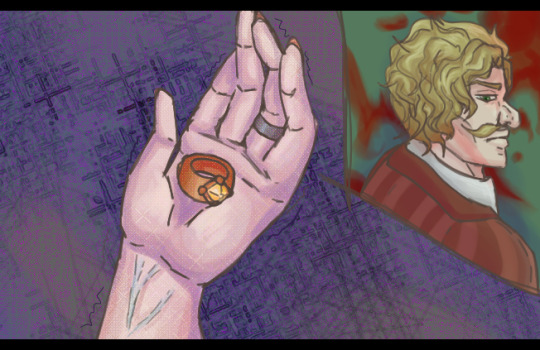


A small selection of art based on witch's heart, thee of them (2, 3, 5) — on WH ask (yeah, answering for hated characters — incomparable)
12 notes
·
View notes
Note
Hi!! Do you know of anyone who takes requests for R from Warm Bodies? I’ve been trying to find blogs who wanna write for him🤧🤧🤧
Hello! I’m not sure if I do. It’s an old movie and there’s little fandom for it still kicking around lol.
I wouldn’t mind hearing your prompt and writing something for you if you want! I love writing about my zombie boy <3
Any mutuals reading this answer or scrolling through the tag also wanna volunteer as tribute?
4 notes
·
View notes
Text
THE RANGER (2018)

Where has this movie been all my life? This little flick is a total underrated gem in regard to campy slashers. The very idea of a deranged forest ranger hunting down punks because they violated the park code is outright ridiculous and, in my opinion, reason enough to check this movie out. The ranger' very animated actions paired with his cheesy 1 liners about garbage in the forest keep the film light and bordering on horror comedy. The wardrobe in this film also was incredible, showcasing different styles of punk clothing in a very authentic way, with most of it looking homade and / or DIYed. A lot of the scenes in this film were shot beautifully with help from the gorgeous scenery. However, campy, this all sounds like there are still some very powerful and unsettling scenes from this film. I was especially disturbed by the ranger crawling around naked except for a wolf pelt and howling like a predator. Absolutely unhinged behavior, and I have to hand it to the actors' performance because that scene has not left my head since I watched it. I also liked seeing Chelsea go from an annoying wannable punk to a strong woman capable of saving herself and reclaiming her life. I didn't need the "wolf recognizing wolf"symbolic scene, but other than that, this film is definitely worth your time.
#horror#horrormovies#bunnytalks#movie recommendation#slasher fandom#slasher movies#2010s horror#the ranger#the ranger 2018#chloe levine#jeremy holm#jeremy pope#nicholas tucci#jeremie poppe#amanda grace benitez#bubba weiler
1 note
·
View note
Text
Voice of Shadows ('15'): Dodgy possession horror fails to excite.
#onemannsmovies #filmreview of "Voice of Shadows". A horror film that's short on horror. 1.5/5.
A One Mann’s Movies review of “Voice of Shadows” (2024). “Voice of Shadows” is another movie that I was sent a pre-release screener for. This is an attempt at a horror movie that manages to build some atmosphere but singularly failed to scare me. It will be appearing on streaming services (Apple TV, Amazon Prime Video, Google Play, Fandango at Home, Vimeo, and local cable & satellite providers)…
#bob-the-movie-man#bobthemovieman#Cinema#Corrinne Mica#Film#film review#Guillermo Blanco#Jane Hammill#Martin Harris#Michael Paul Levin#Movie#Movie Review#Nicholas Bain#One Man&039;s Movies#One Mann&039;s Movies#onemannsmovies#onemansmovies#Review#Voice of Shadows
0 notes